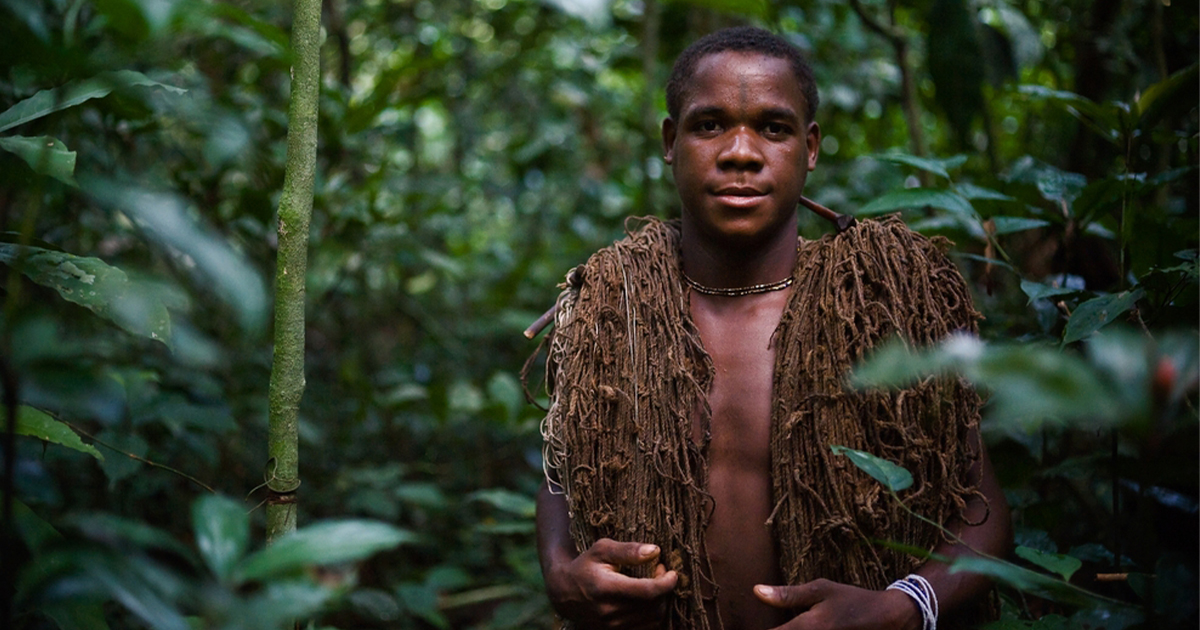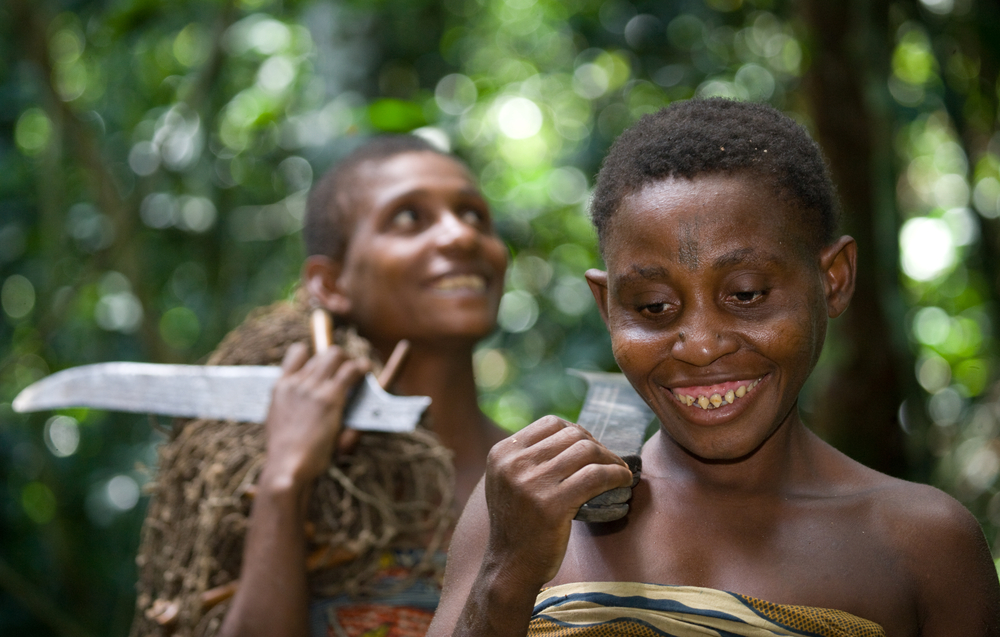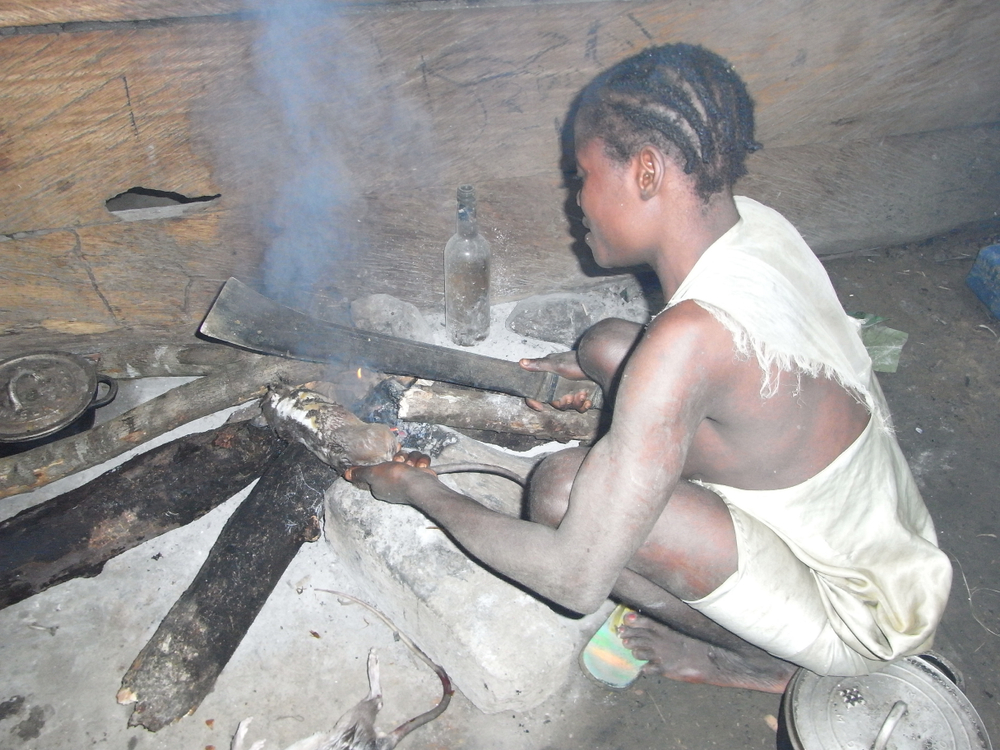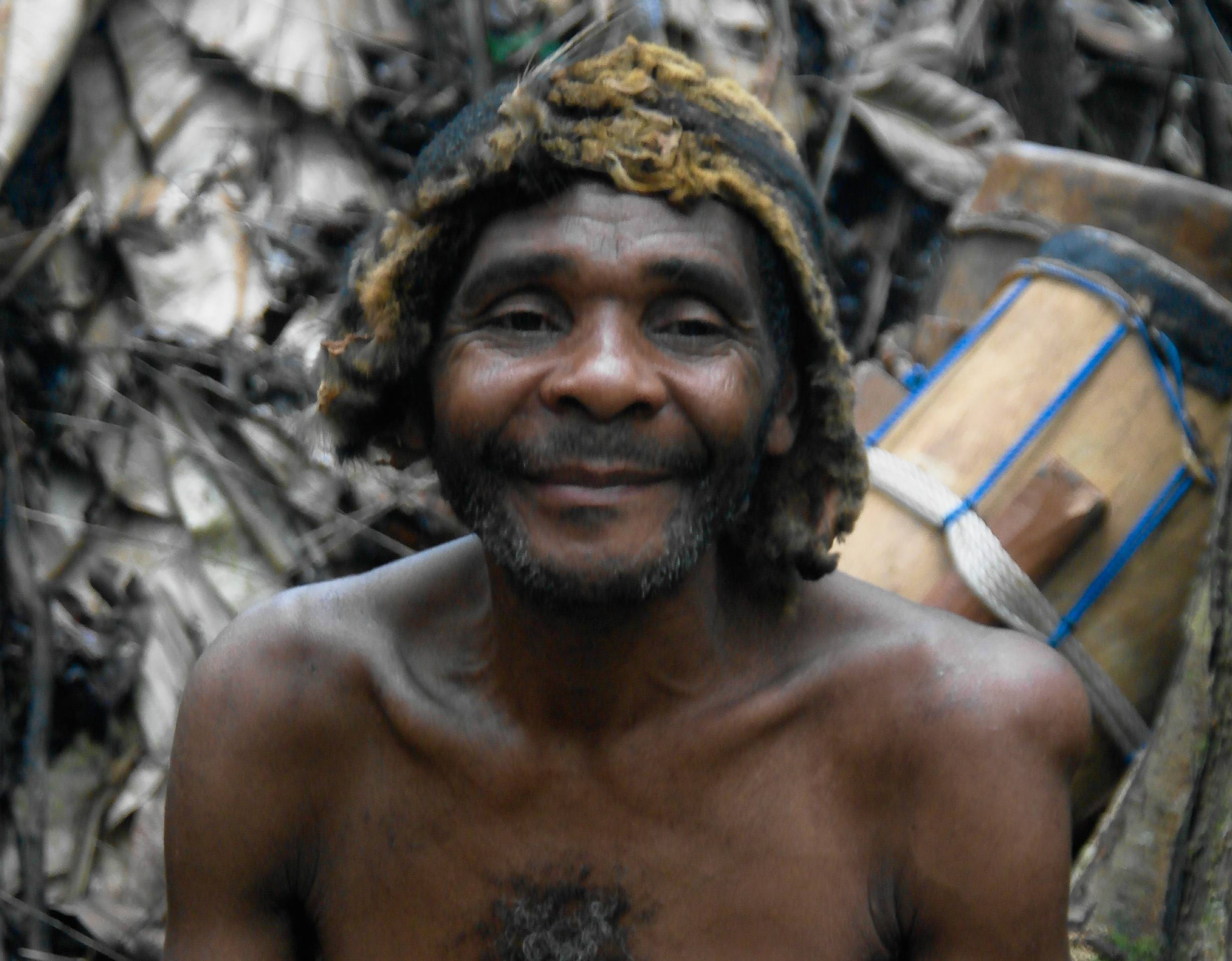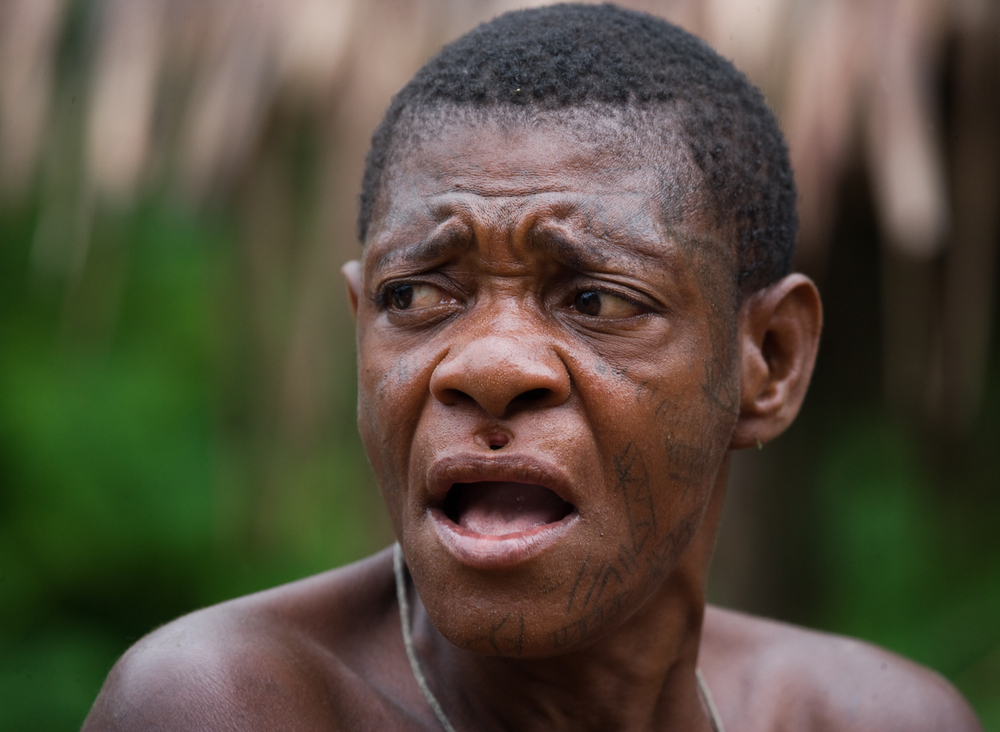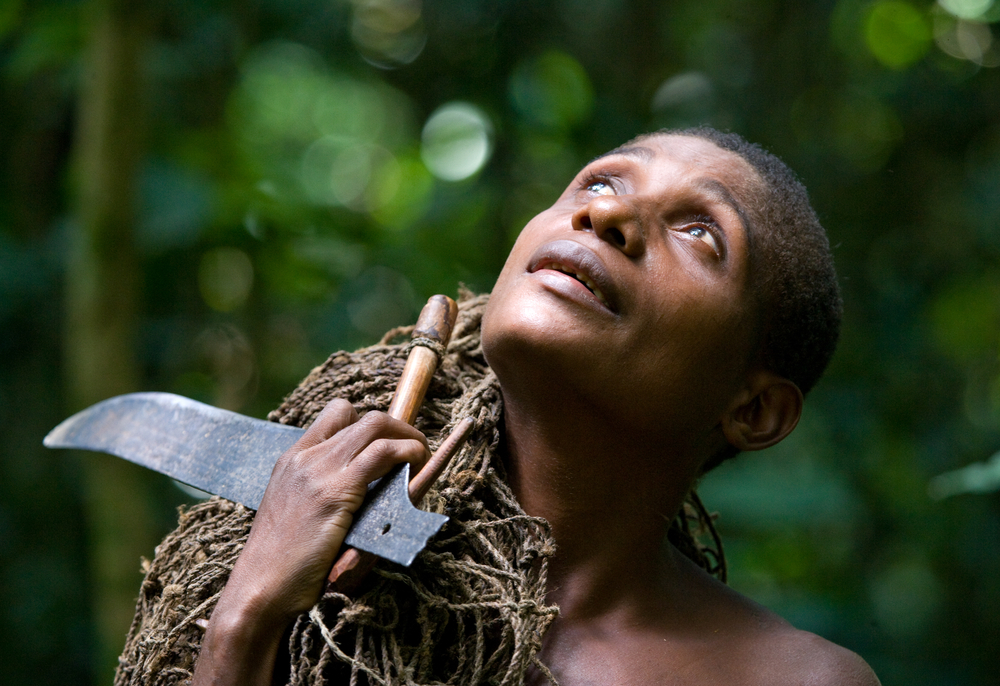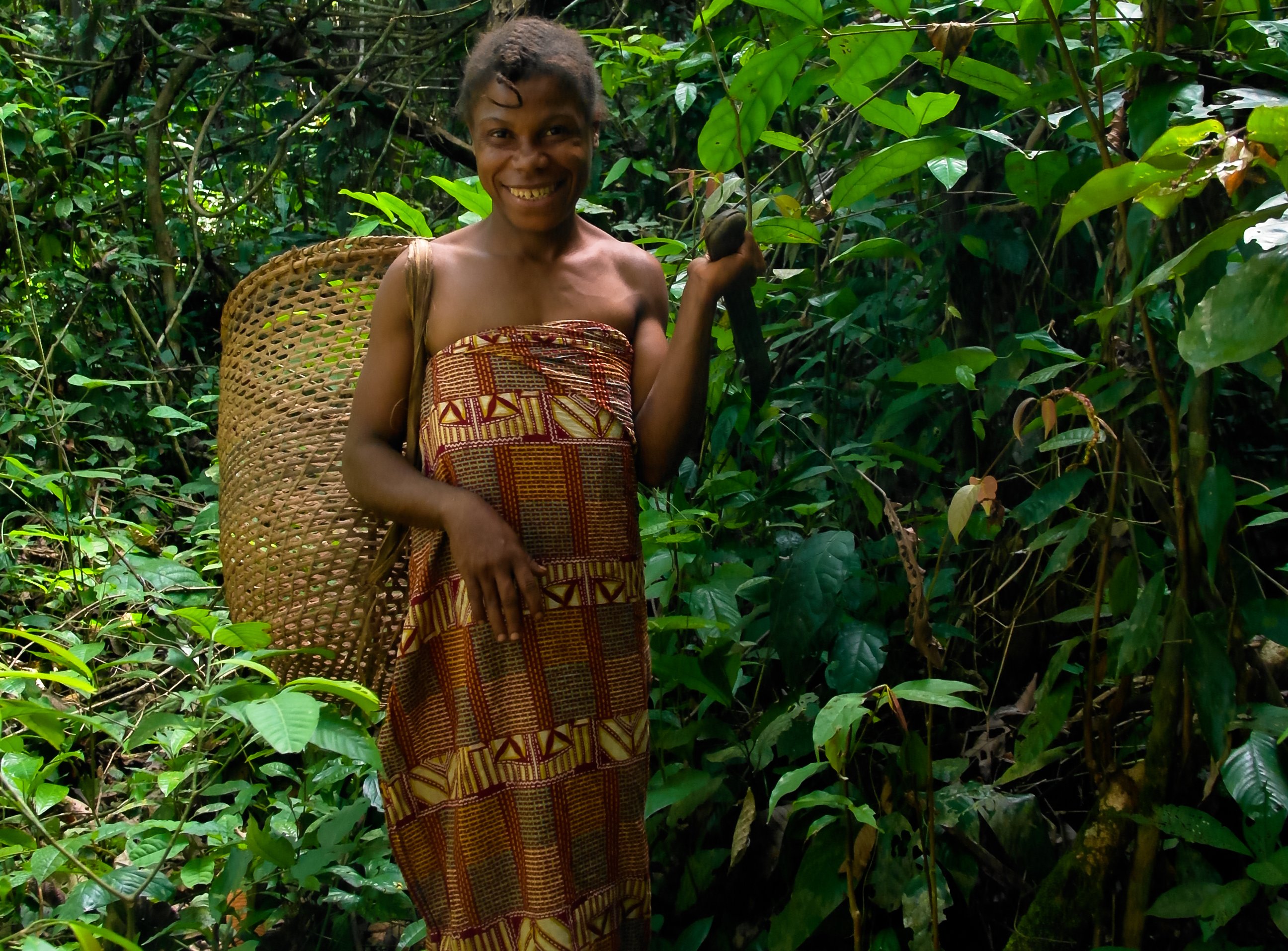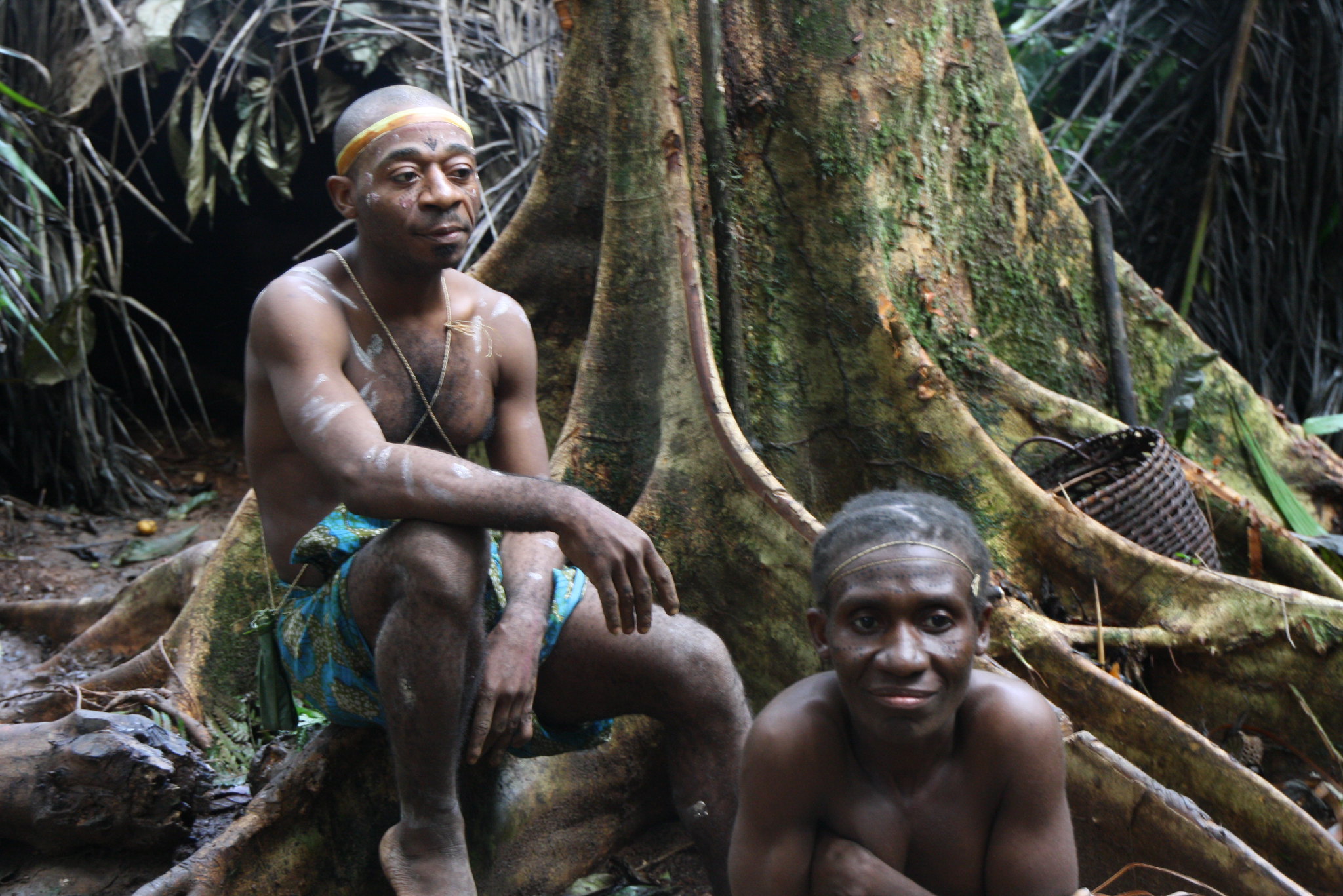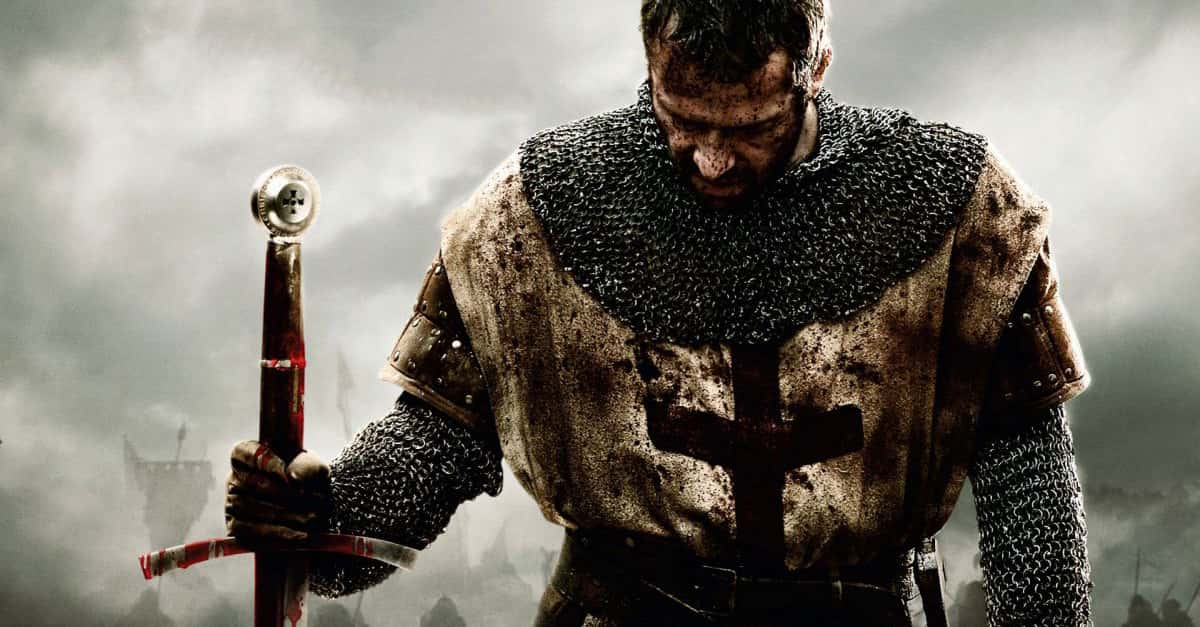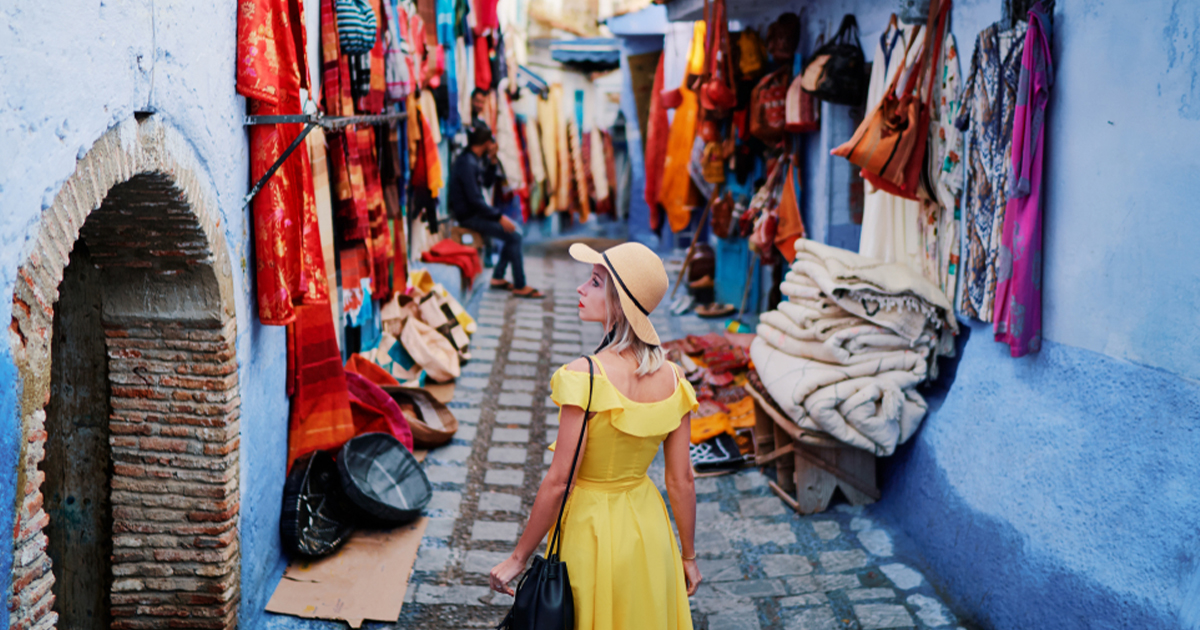The Baka People
The lush rainforests of Central Africa are where you'll find the Baka people. Known for their short stature, the Baka are one of the oldest indigenous groups in the region, and despite the challenges of modernization, they have managed to preserve their unique way of life and now stand as the defenders of Cameroonian rainforests.
Let's learn more about their incredible story.
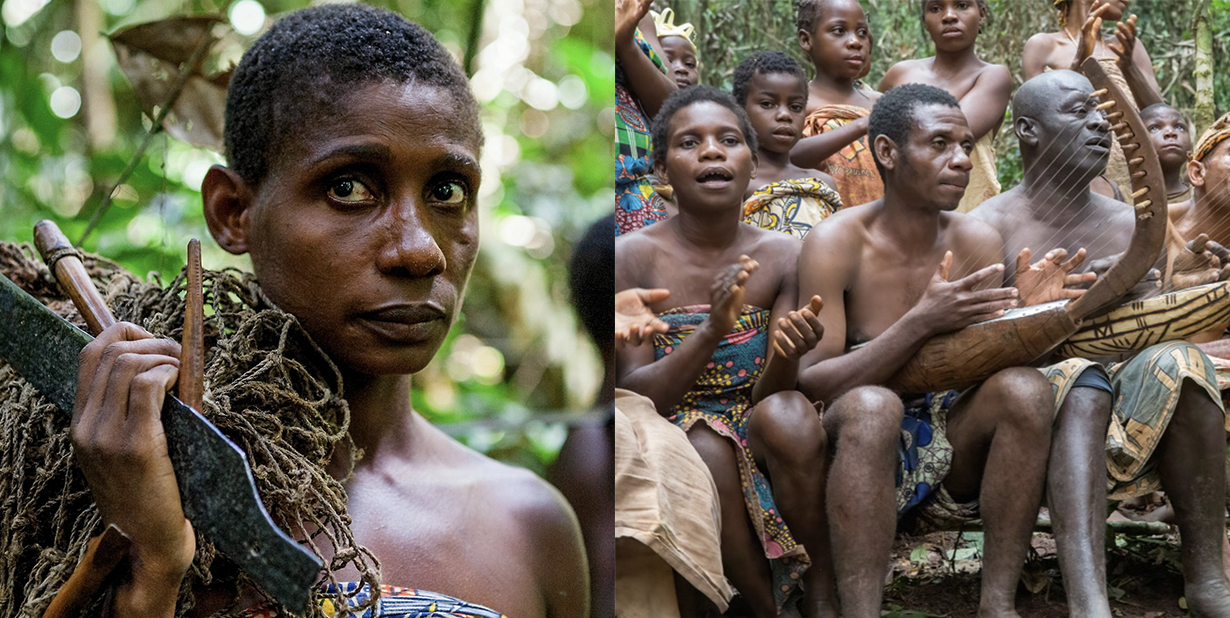
Where Do They Live?
The Baka people live in the southeastern rainforests of Cameroon. There are approximately 30,000 Baka living in Cameroon, with a few settlements in the northern areas of Gabon and the Republic of Congo.
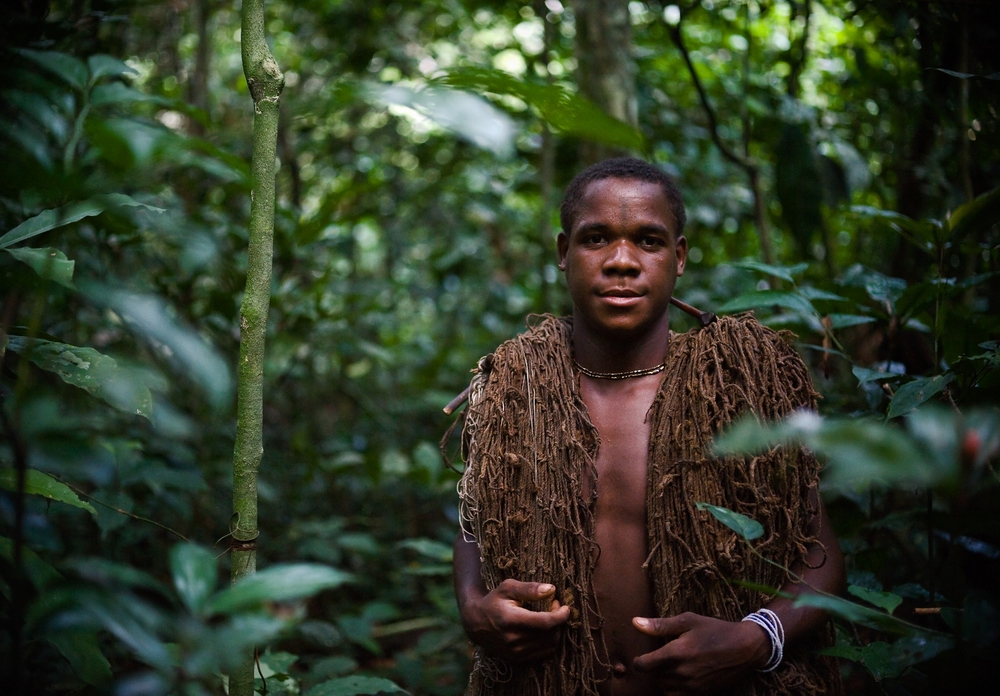 Sergey Uryadnikov, Shutterstock
Sergey Uryadnikov, Shutterstock
Hunter-Gatherer Lifestyle
The Baka are hunter-gatherers. Men use spears, poisoned arrows, and dogs when hunting. Traditionally, the Baka have also been semi-nomadic, able to move and setup temporary communities according to the season.
However, most Baka today live sedentary lifestyles.
The Persecution Of The Baka
On average, Baka people stand no more than five feet tall. Their small size has led other communities to ostracize them, or worse, outright harm them.
The Bantu, who hail from the Democratic Republic of Congo, have a long history of keep Baka people as slaves. This heinous practice still occurs today.
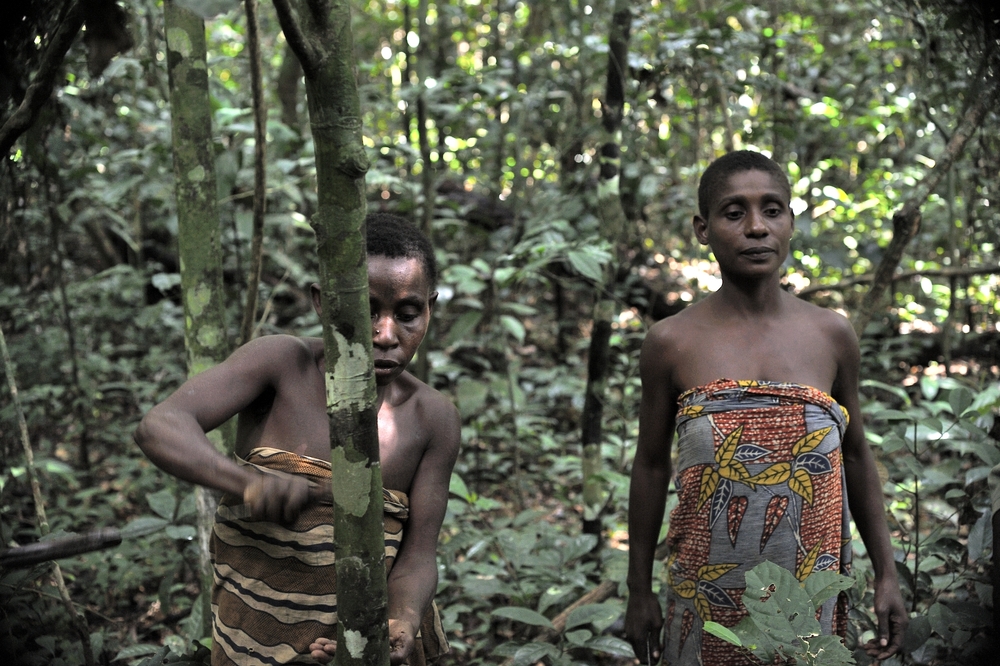 Sergey Uryadnikov, Shutterstock
Sergey Uryadnikov, Shutterstock
Old Names
Historically, the Baka have been called Pygmies, because of their short stature. That term is now considered offensive to the Baka and was used to refer to other groups of people who are shorter than average, like the Mbuti and Twa.
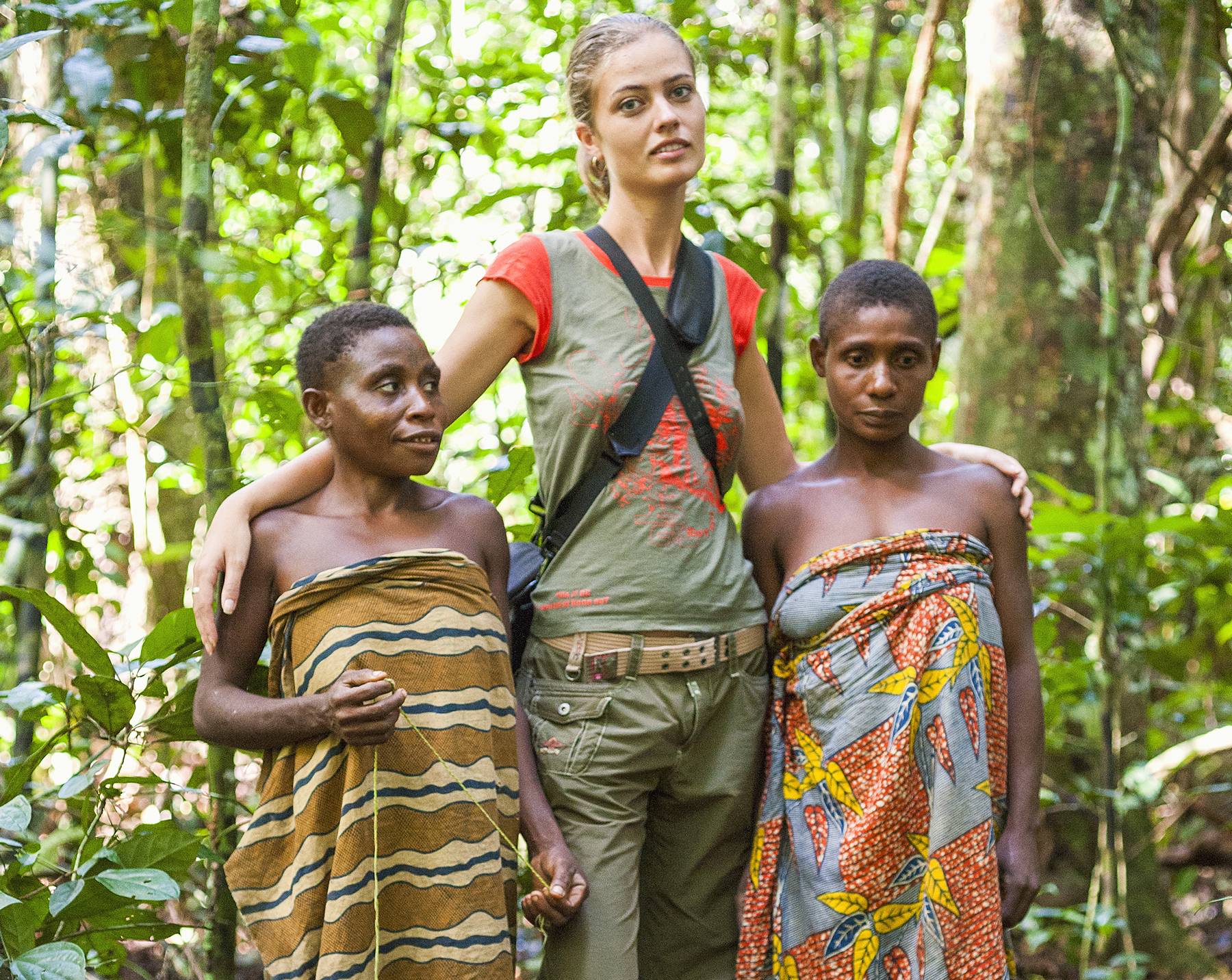 Sergey Uryadnikov, Shutterstock
Sergey Uryadnikov, Shutterstock
What Do They Eat?
Baka women grow many plants and vegetables in their gardens, including cassavas, plantains, and bananas. They also practice beekeeping.
During the dry season, the Baka move closer to the river, to take advantage of fishing opportunities.
What Do They Eat? (cont’d)
The dry season is also when Baka do the most hunting. Men will stay out all day to catch antelope called duikers, while women harvest two kinds of fruits, “mabe” and “peke”, which are sought after for their juice and nuts.
Harvesting honey, which is called “poki”, is also important and the Baka keep a close eye on the bee activity in the area.
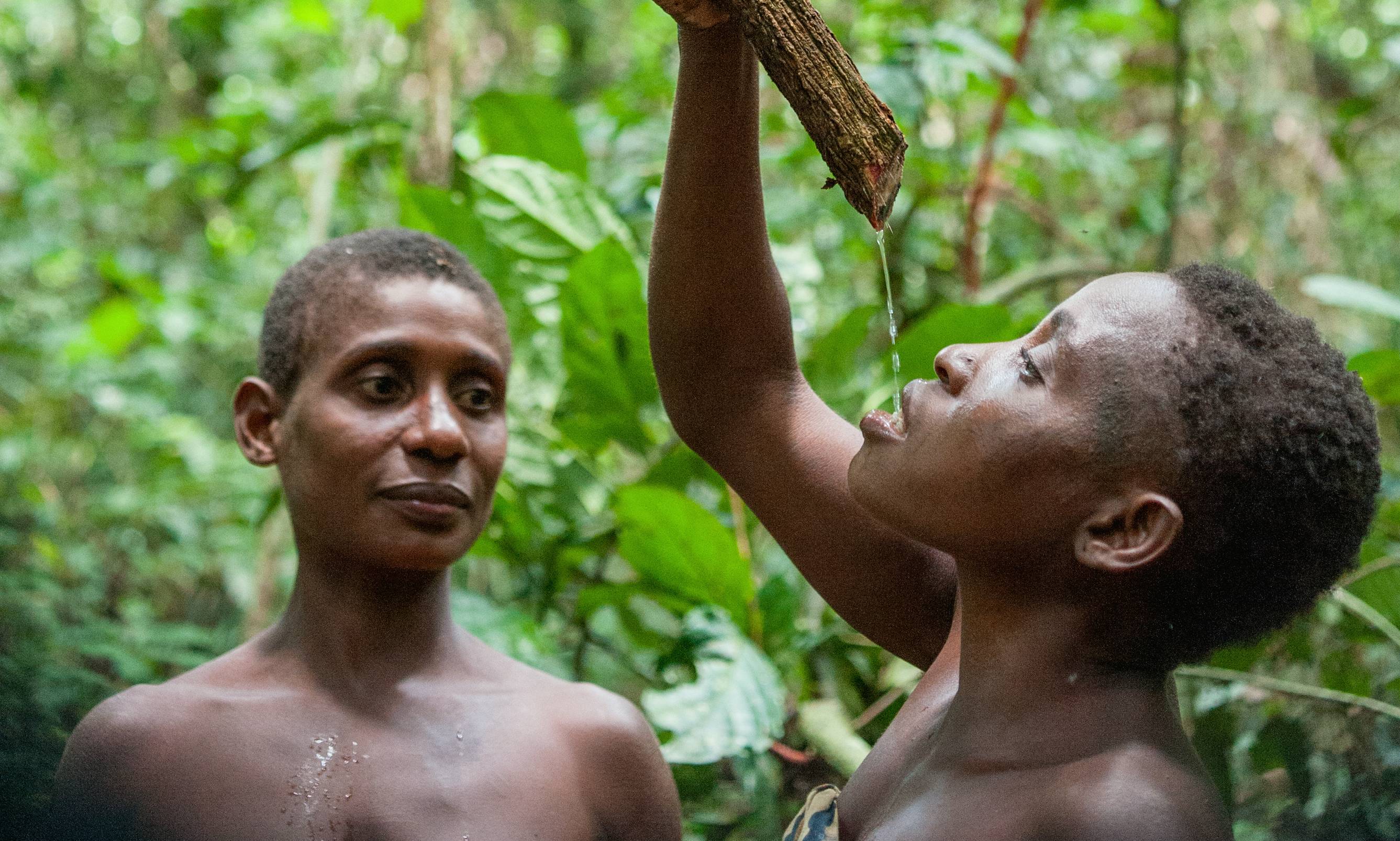 Sergey Uryadnikov, Shutterstock
Sergey Uryadnikov, Shutterstock
Fishing In Baka Communities
Fishing is an important part of Baka culture and boys are taught to fish at young age. The Baka have two unique ways of fishing.
In the first method, they disperse non-toxic chemicals from crushed plants downstream. This makes the fish lose oxygen and float to the surface where they are easily collected.
Fishing In Baka Communities (cont’d)
Dam fishing is another way of catching fish that is used mostly by women. By building dams, they can remove the water from an area, which leaves the fish exposed on the ground.
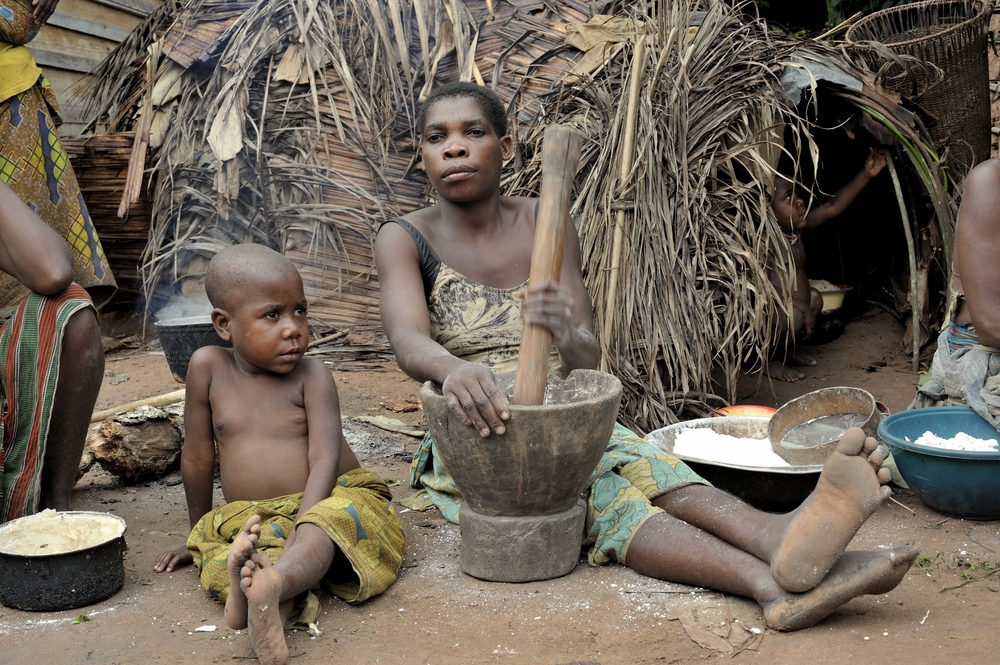 Sergey Uryadnikov, Shutterstock
Sergey Uryadnikov, Shutterstock
Traditional Music And Dance
Music and dance are very important parts of Baka culture. They use these artistic forms during celebrations, storytelling, and spiritual rituals.
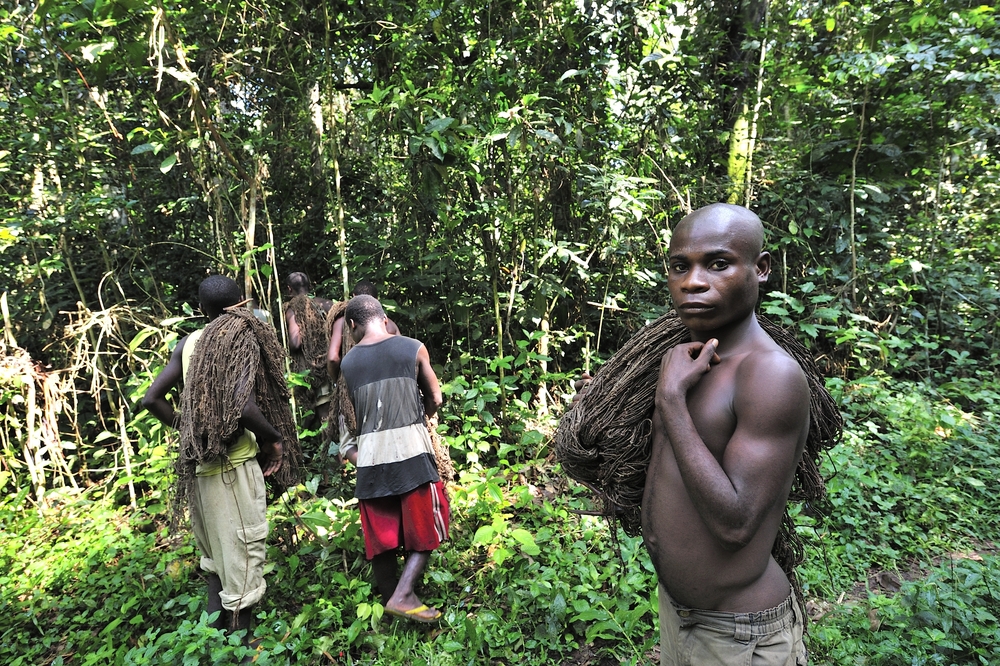 Sergey Uryadnikov, Shutterstock
Sergey Uryadnikov, Shutterstock
Polyphonic Singing
The Baka are known for their polyphonic singing, a unique vocal tradition where multiple melodies intertwine to create a beautiful harmony. Jodel is another common voice technique which involves using chest and head voices to create a range of vocal tones.
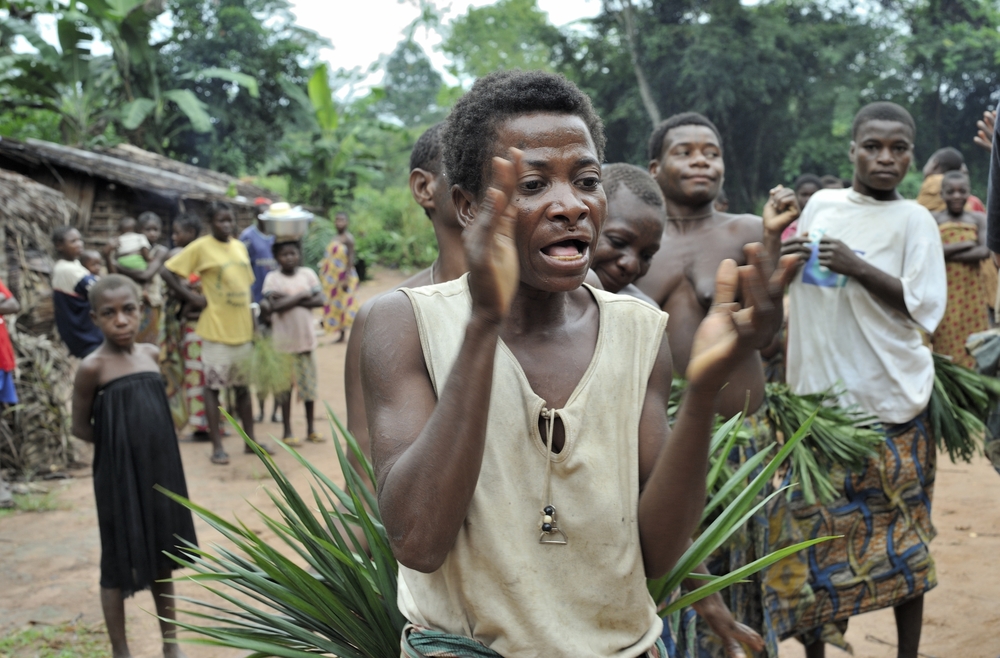 Sergey Uryadnikov, Shutterstock
Sergey Uryadnikov, Shutterstock
Traditional Baka Instruments
Common Baka musical instruments, such as drums, harps, and flutes, are made from natural materials, like tree barks and river rocks. The musical bow is another common Baka instrument that is only played by women.
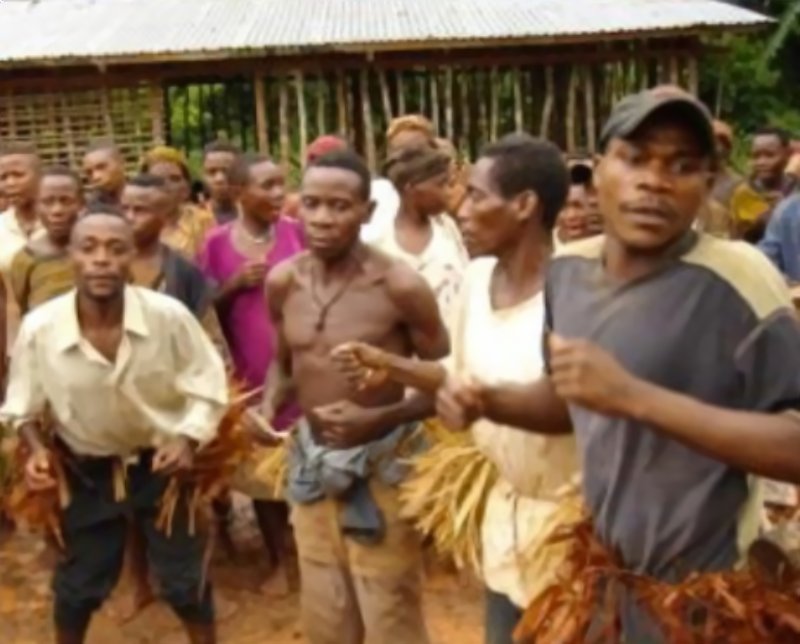 Embassy of the United States of America to Cameroon., Wikimedia Commons
Embassy of the United States of America to Cameroon., Wikimedia Commons
Spiritual Beliefs
The Baka worship a forest spirit named Jengi. Jengi is seen a protective father-figure who helps the Baka communicate with Komba, the supreme being.
They believe that revering Jengi is the only way to gain Komba’s approval, and Jengi can be found in all the aspects of the forest.
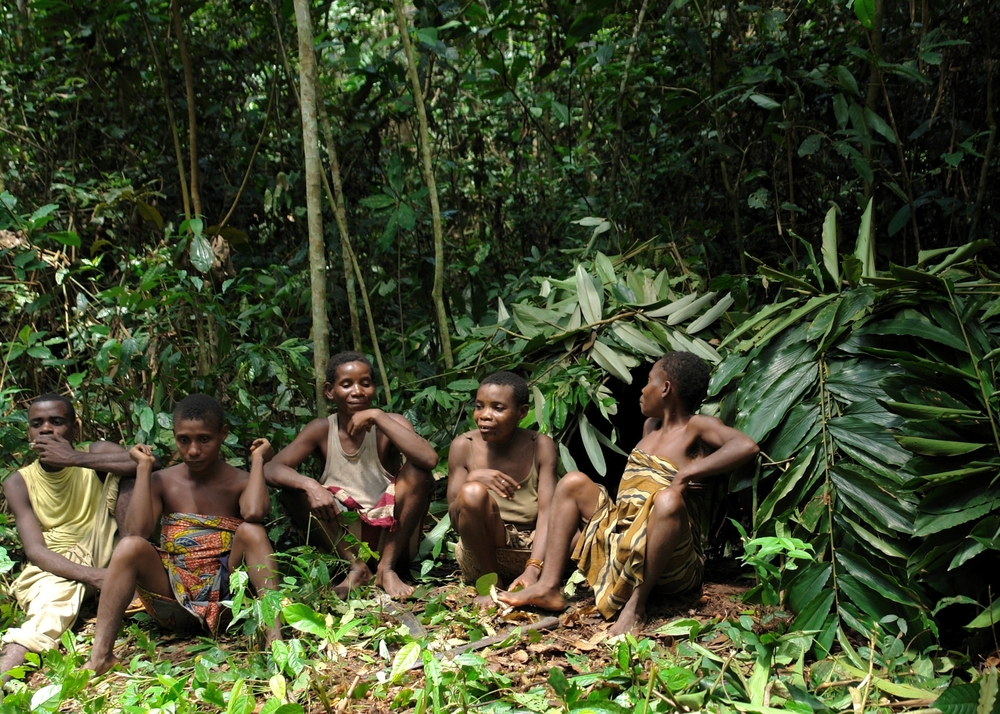 Sergey Uryadnikov, Shutterstock
Sergey Uryadnikov, Shutterstock
Their Spiritual Dances
After a good hunt, the Baka show thanks to Jengi by performing a ritual dance called Luma.
Luma is very important since the Baka believe that Jengi can only show appear before them if there is harmony among the people.
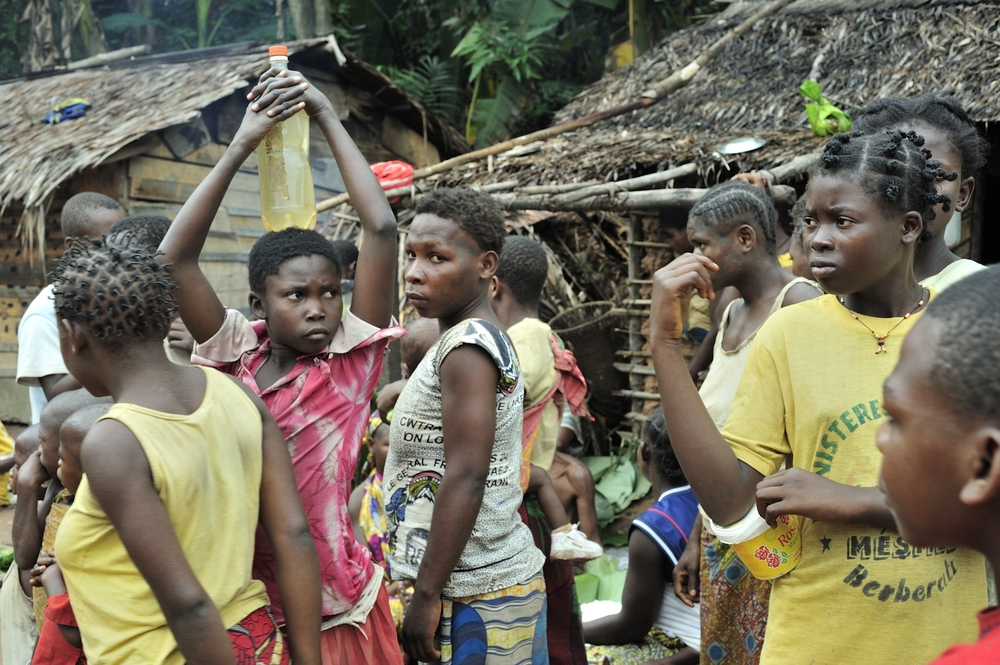 Sergey Uryadnikov, Shutterstock
Sergey Uryadnikov, Shutterstock
Rites Of Passage
Jengi is also an important figure in the rite of passage for Baka men. When they are ready to become men, Baka youth volunteer to be initiated by Jengi. After the ceremony, they are free to live as an adult man.
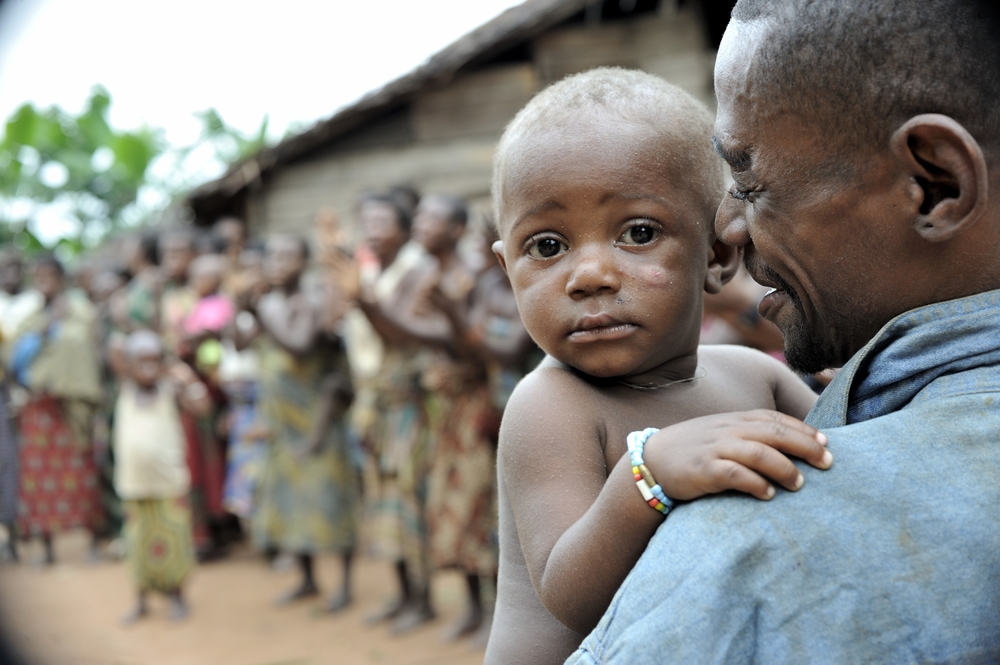 Sergey Uryadnikov, Shutterstock
Sergey Uryadnikov, Shutterstock
Their Beliefs About The Afterlife
The Baka view death as a great misfortune, and when someone in the community dies, its seen as representing spiritual discord.
When someone passes away, the tribe cover the body in debris, pray to Jengi, and perform a ritual dance called Mbouamboua. After a night of dancing, the villagers move camp, leaving the body behind so they avoid being cursed.
Their Traditional Medicine
Traditional healing practices involve a deep knowledge of herbal remedies. Despite scientific debate, their herbal medicines are famous in the region and are sought-after by non-Baka people.
An interesting thing to note is that many Baka have had Ebola, though none have ever shown symptoms of the illness. Mabe they’re really onto something with those herbal remedies.
The Role Of Elders
Elders play a crucial role in Baka society, since they pass on the history and oral traditions of the community. They also invoke Jengi during ceremonies and rituals by drumming.
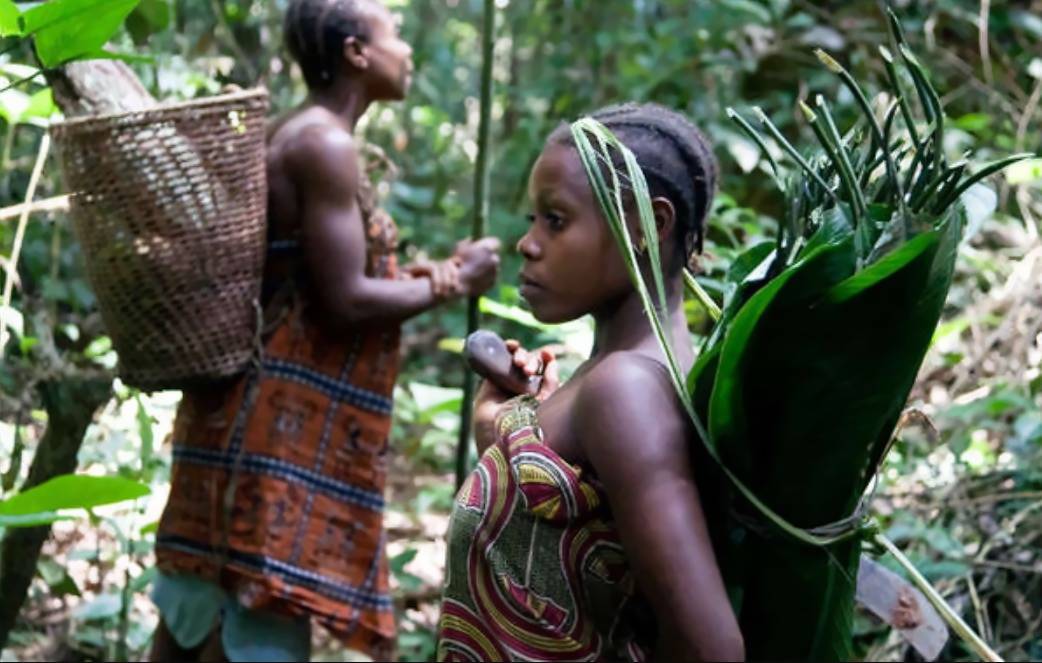 Élie Nzuzi, CC BY-SA 4.0 , via Wikimedia Commons
Élie Nzuzi, CC BY-SA 4.0 , via Wikimedia Commons
Gender Roles In Baka Communities
For the most part, responsibilities in Baka communities are divvied up based on gender. Men do most of the hunting, while women farm and harvest natural crops from the forest.
Women are also the ones who makes the huts, using branches and leaves.
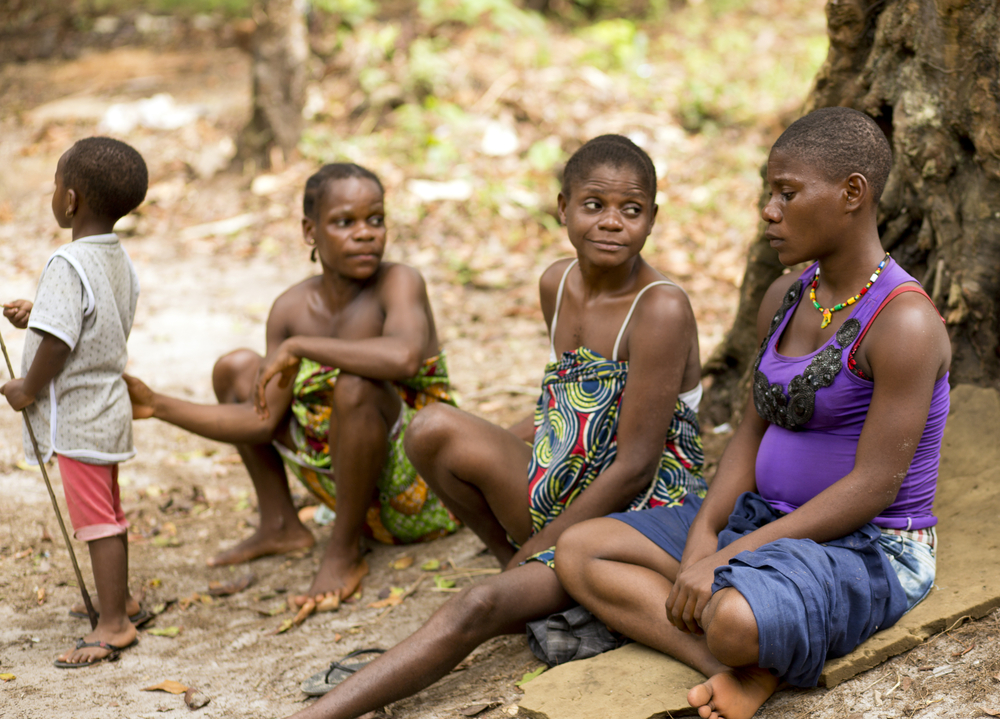 Sergey Uryadnikov, Shutterstock
Sergey Uryadnikov, Shutterstock
Their Traditional Clothing
Traditionally, Baka clothing was made from tree bark and leaves. Loin cloths were common, though overall, they wore little.
Many modern Baka wear western clothing, even when they return to the forest.
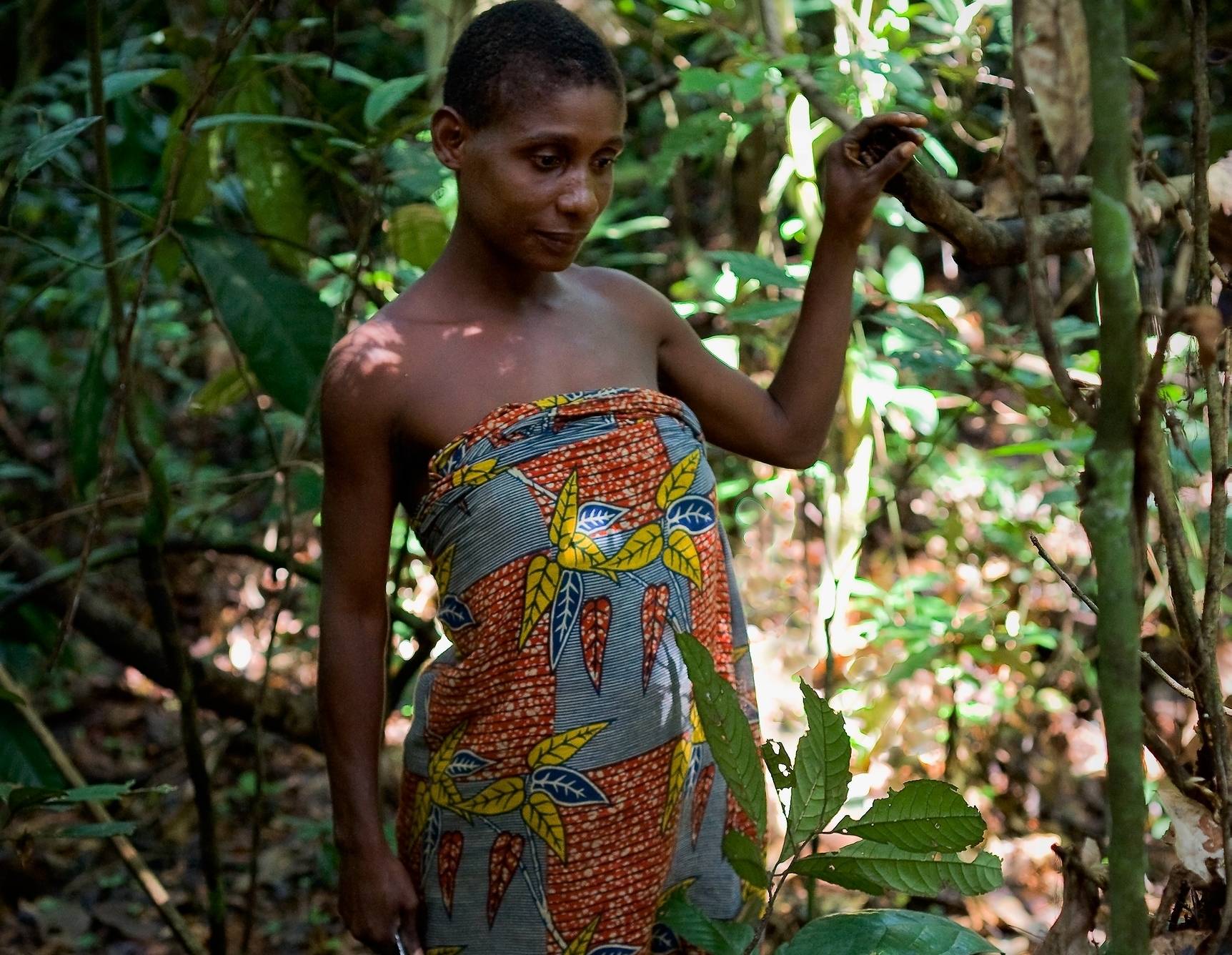 Sergey Uryadnikov, Shutterstock
Sergey Uryadnikov, Shutterstock
Basket Weaving In Baka Communities
The art of basket weaving is a skill passed down through generations of Baka women. They make vine baskets which are used for storing goods and collecting harvests.
Their Tattoos
Tattoos are a beloved part of Baka culture. Women in particular, get many tattoos, some even on their face.
The different styles of tattoos relate to different clan identities or one’s social position within the community.
Baka Storytelling
Storytelling is an important tradition in Baka communities. In addition to being a fun way of spending time together, storytelling is a way of sharing the oral history of a tribe, and passing that knowledge down through the generations.
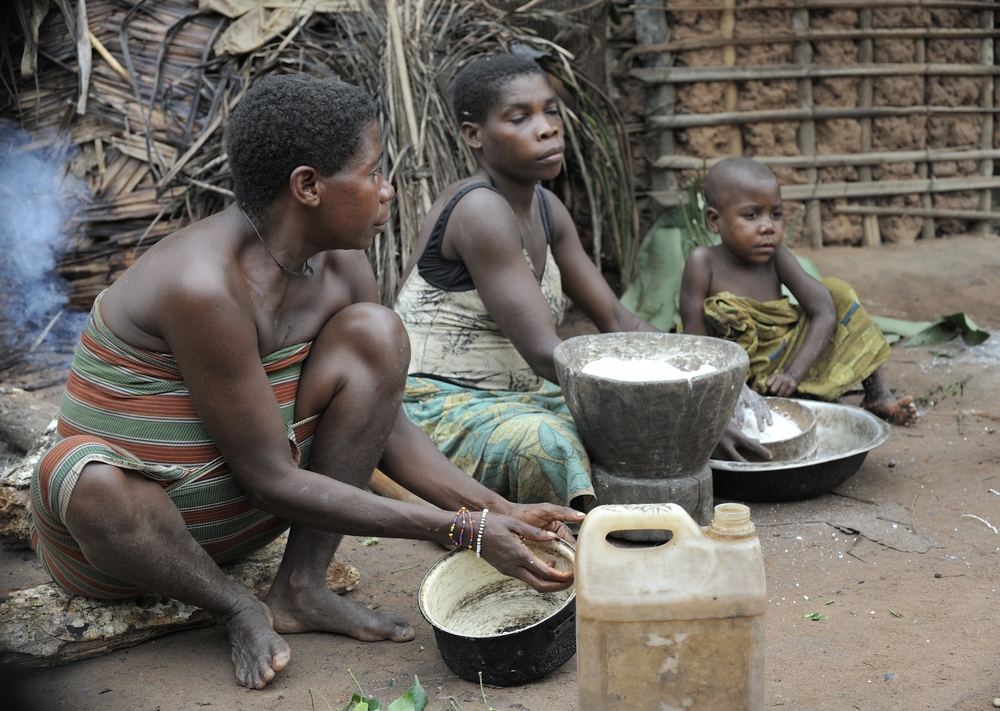 Sergey Uryadnikov, Shutterstock
Sergey Uryadnikov, Shutterstock
Their Language
The Baka speak their own distinct language, which is named after the tribe.
There has been some debate over the origin of the language, but most anthropological evidence points to it having roots to some Bantu languages.
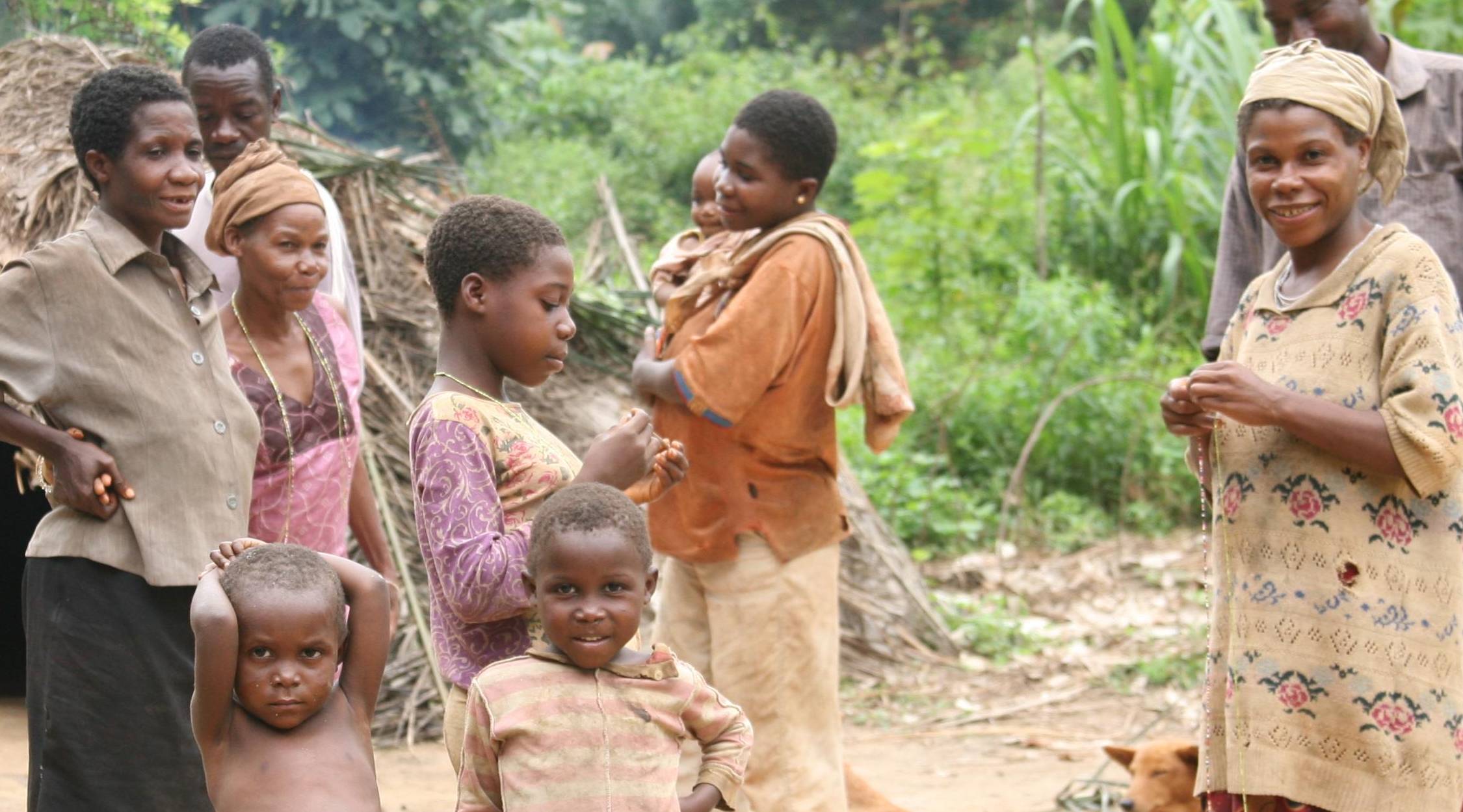 Earwig, CC BY-SA 3.0, Wikimedia Commons
Earwig, CC BY-SA 3.0, Wikimedia Commons
Baka Education
Formal education is not a part of Baka culture, so Baka children rarely attend public schools. And since they’re an ethnic minority, schools are often hotspots for Baka children to be teased by their Bantu peers.
Most Baka pass on knowledge through families and communities rather than rely on formalized institutions.
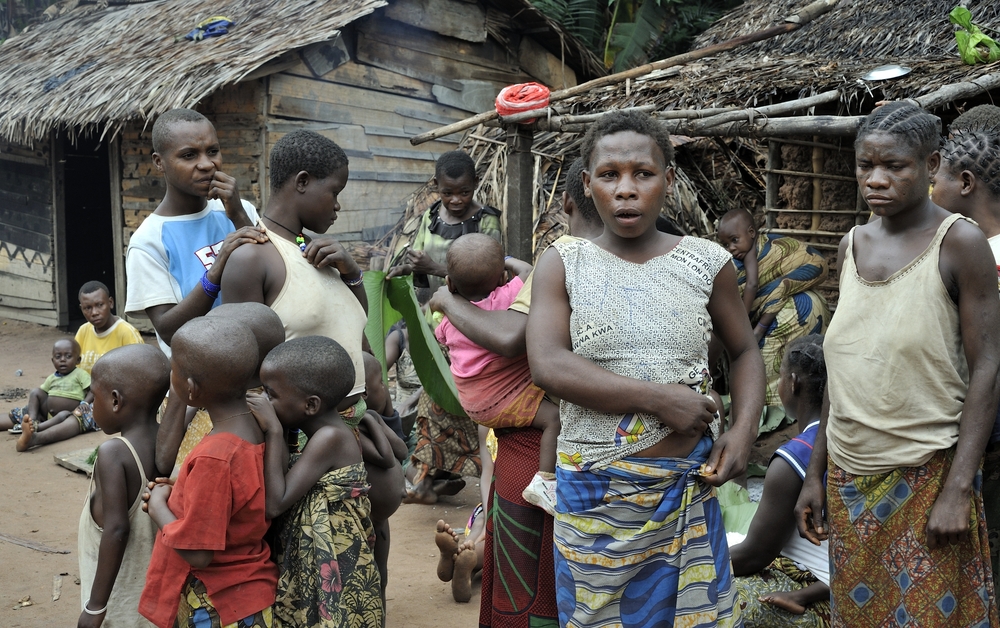 Sergey Uryadnikov, Shutterstock
Sergey Uryadnikov, Shutterstock
The Impact Of Modernization
The Baka face many challenges in the modern world. As logging and oil companies seek the resources of Cameroon’s rainforests, the Baka have lost much of their traditional homelands.
This has led many Baka to let go of their nomadic traditions and settle down in permanent communities.
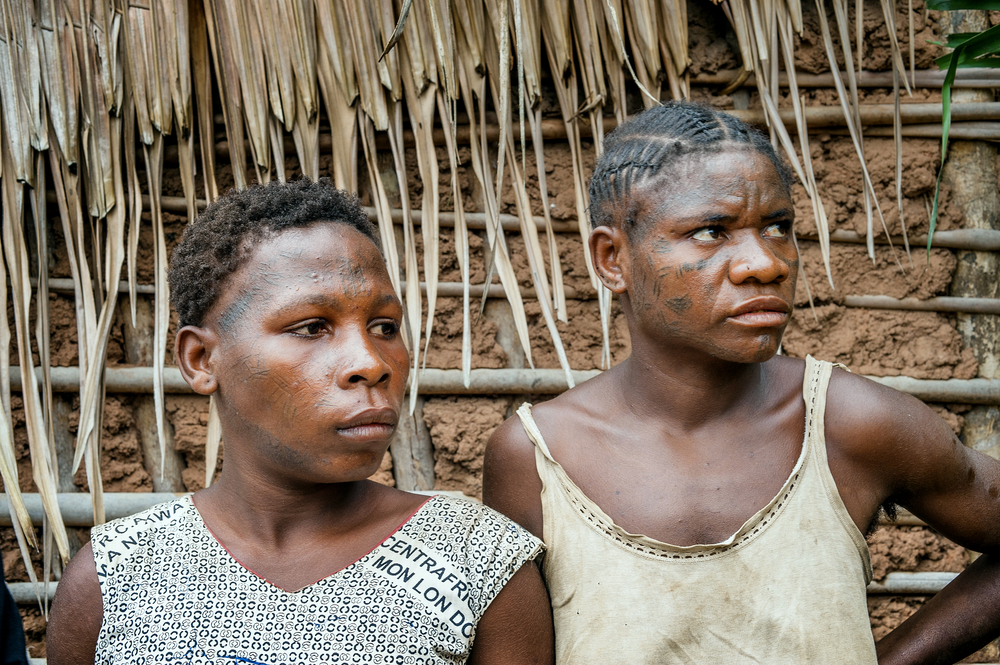 Sergey Uryadnikov, Shutterstock
Sergey Uryadnikov, Shutterstock
The Poachers
Poaching is another threat to the Baka’s way of life and has resulted in the mass depletion of one of the Baka’s staple foods: Duiker antelope.
Seeking the red and blue hides of duikers, the poachers hunt in the forests at night, and they’re not shy about turning their guns on any Baka who get in their way.
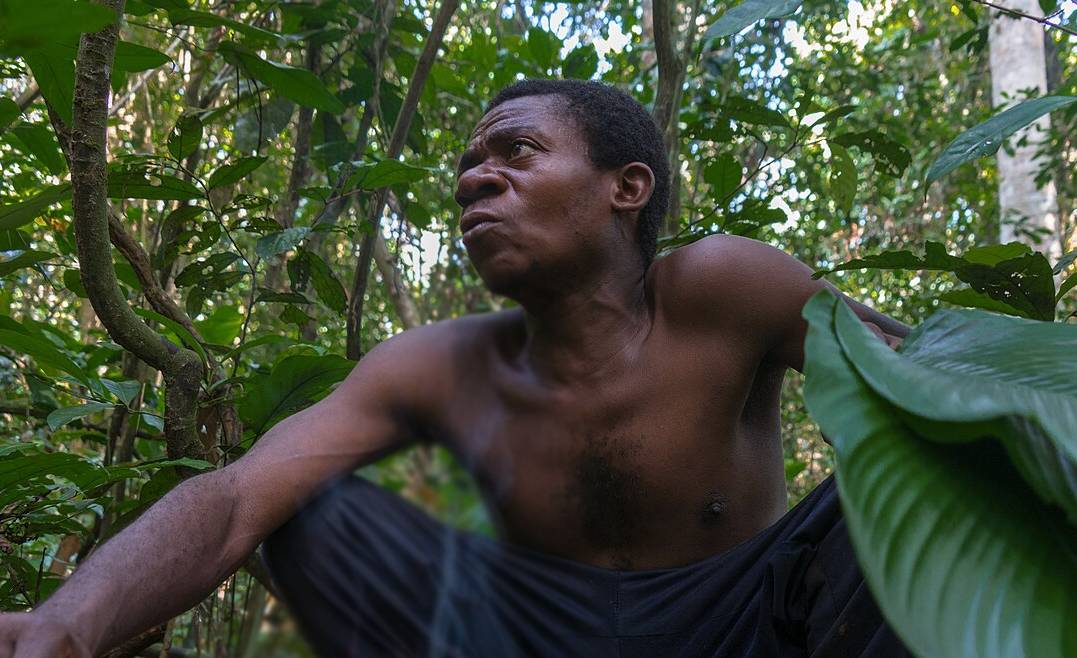 Alejpalacio, CC BY-SA 4.0, Wikimedia Commons
Alejpalacio, CC BY-SA 4.0, Wikimedia Commons
Their Fight For The Rainforests
Even when they choose to live in sedentary communities, the Baka still rely on the rainforests for many aspects of everyday life. Many utensils and tools are still made with natural resources, and the forests are still the best hunting grounds.
In recent years, the plight of the Baka has gained attention from international human rights and eco-friendly organizations. This has led to more calls for legal rights for Baka and protections for the Cameroonian rainforests.
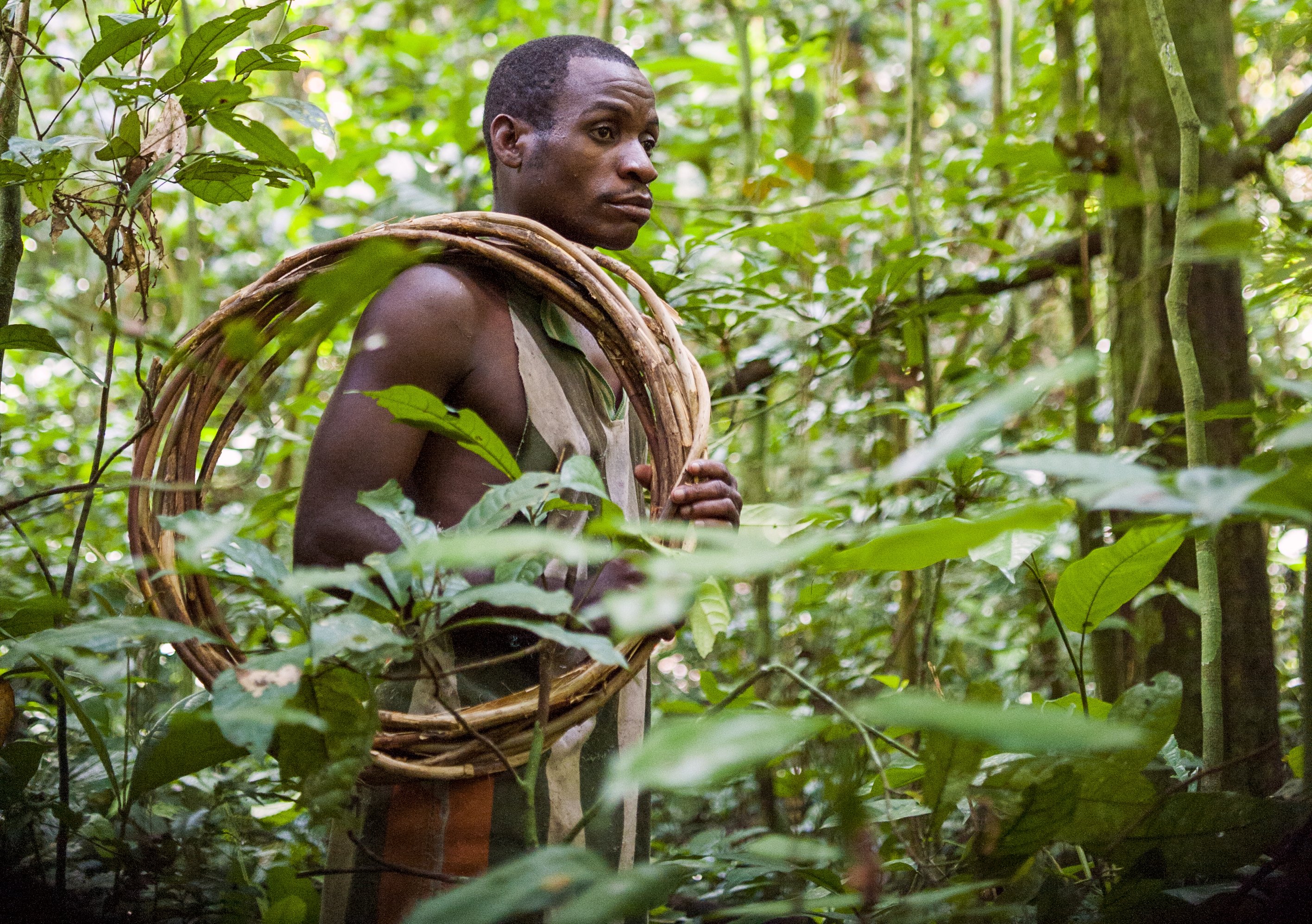 Sergey Uryadnikov, Shutterstock
Sergey Uryadnikov, Shutterstock
Protecting Their Culture
Though the modern world has encroached on the Baka’s land, they still cling to their traditional customs, albeit it with some adaptations. Most modern Baka live a semi-nomadic lifestyle, spending time in settled communities and as nomads in the rainforest.
Communities are also a little less segregated, with women now being allowed to join in on hunts.
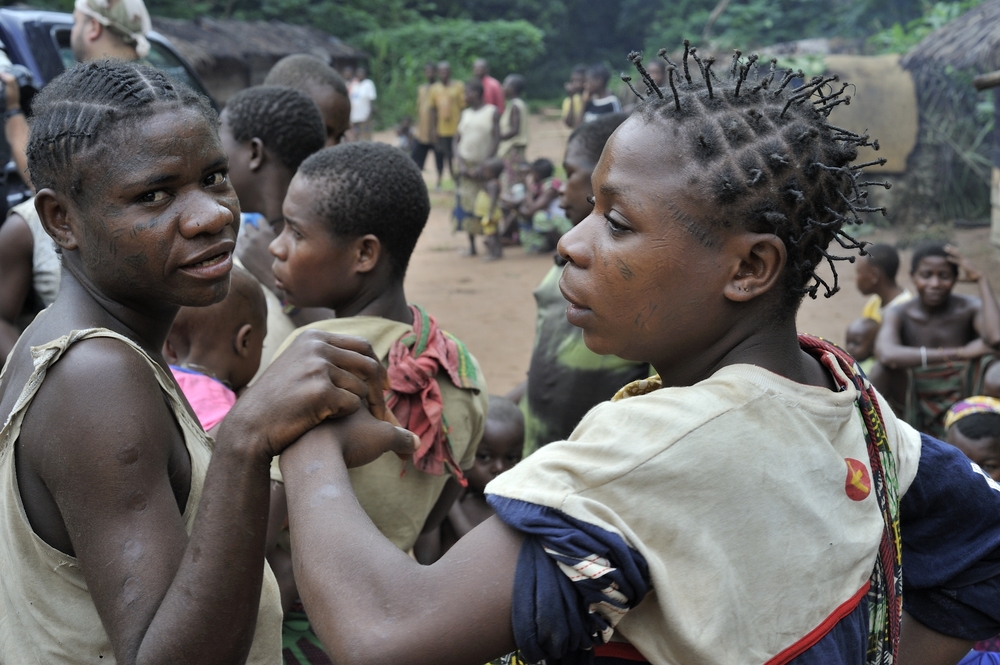 Sergey Uryadnikov, Shutterstock
Sergey Uryadnikov, Shutterstock
Final Thoughts
The Baka have shown incredible resilience in the face of challenges from the outside world. But even though they’ve found a way to adapt traditions with new way of being, the Baka are still under threat.
Hopefully, as the world begins to pay more attention to Indigenous issues, there will be more protections for Cameroon’s rainforests and the people who continue to call that land home.
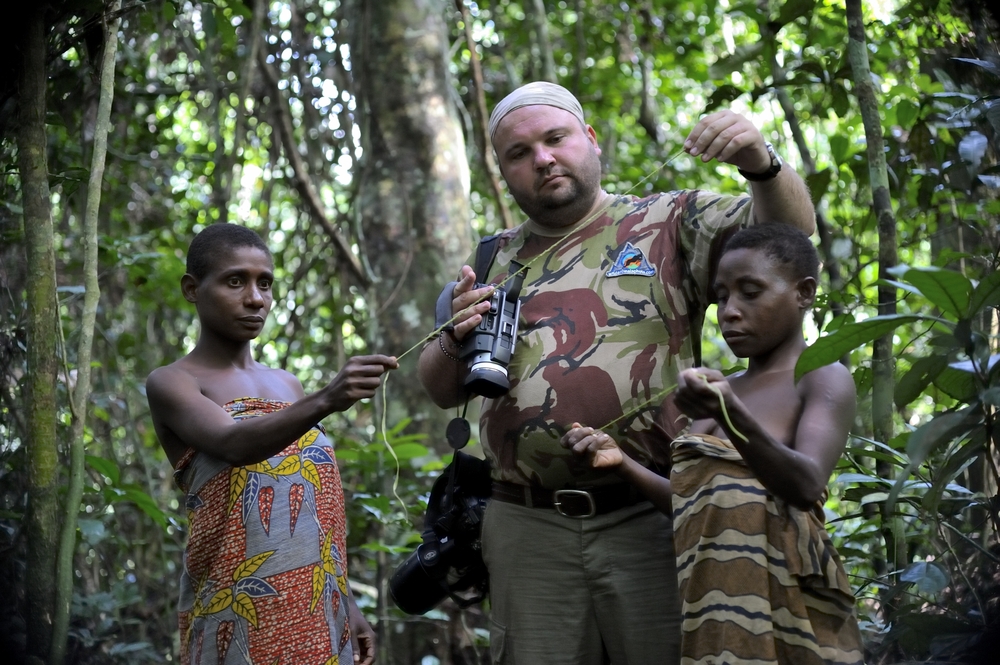 Sergey Uryadnikov, Shutterstock
Sergey Uryadnikov, Shutterstock

